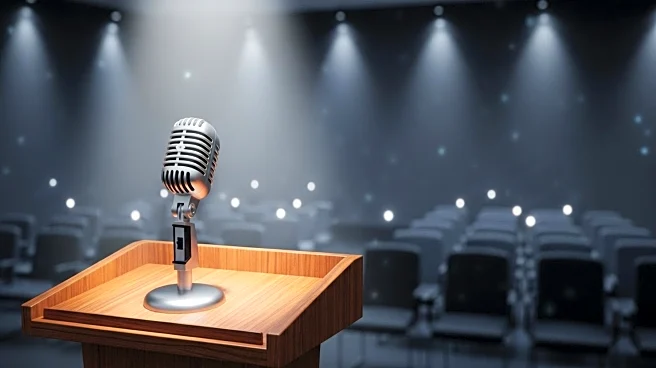What is the story about?
What's Happening?
President Trump has suggested that his administration might consider taking action against journalists whom he perceives as having been 'unfair' in their coverage. This statement has sparked a discussion about the principle of freedom of the press, a cornerstone of the First Amendment. Chris Bury, a senior journalist in residence at DePaul University, joined Dana Kozlov to discuss the implications of such actions on journalistic ethics and the potential threats to press freedom. The conversation highlights the ongoing tension between the government and media outlets, particularly concerning the boundaries of fair reporting and the rights of journalists to operate without fear of retribution.
Why It's Important?
The potential actions suggested by President Trump could have significant implications for the media landscape in the United States. Freedom of the press is a fundamental right protected by the First Amendment, and any perceived threats to this freedom could lead to a chilling effect on journalistic practices. This situation raises concerns about the balance of power between the government and the media, and the ability of journalists to hold public officials accountable without facing punitive measures. The outcome of this tension could impact public trust in both the media and the government, as well as influence the broader discourse on press freedom and democracy.
What's Next?
If the administration decides to pursue actions against journalists, it could lead to legal challenges and debates over the interpretation of the First Amendment. Media organizations and civil rights groups are likely to respond strongly, advocating for the protection of press freedoms. This situation may also prompt discussions in Congress about the need for legislative measures to safeguard journalistic independence. The reactions from various stakeholders, including media outlets, legal experts, and the public, will be crucial in shaping the future of press freedom in the United States.
Beyond the Headlines
The broader implications of this development touch on ethical and cultural dimensions, as it challenges the role of the media in a democratic society. It raises questions about the ethical responsibilities of journalists to report truthfully and the cultural expectations of media as a watchdog of government actions. Long-term, this could influence how journalism is practiced and perceived, potentially leading to shifts in media consumption and public engagement with news.















